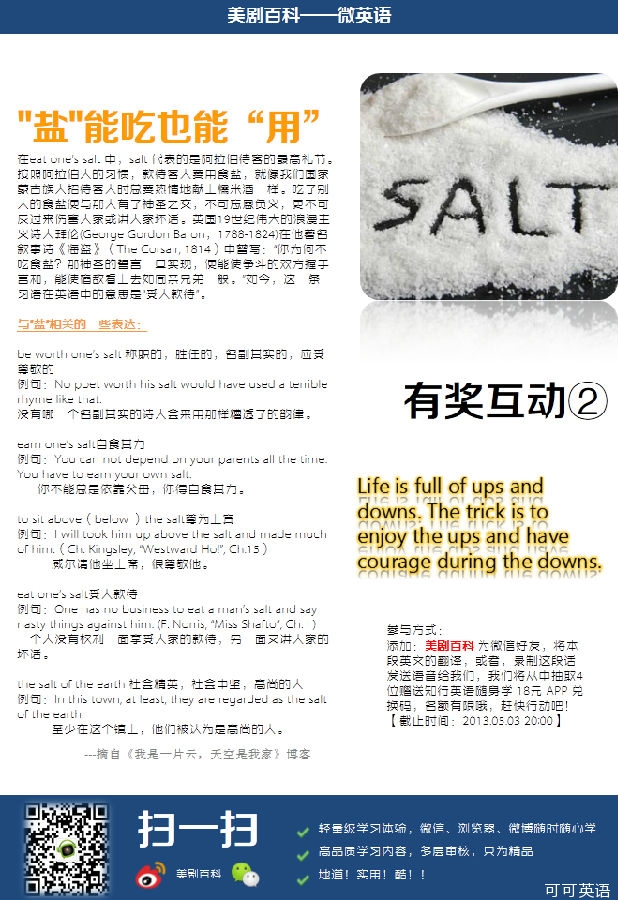"盐"能吃也能"用"
在eat one’s salt 中,salt 代表的是阿拉伯待客的最高礼节。按照阿拉伯人的习惯,款待客人要用食盐,就像我们国家蒙古族人招待客人时总要热情地献上糯米酒一样。吃了别人的食盐便与那人有了神圣之交,不可忘恩负义,更不可反过来伤害人家或讲人家坏话。英国19世纪伟大的浪漫主义诗人拜伦(George Gordon Baron,1788-1824)在他著名叙事诗《海盗》(The Corsair, 1814)中曾写:“你为何不吃食盐?那神圣的誓言一旦实现,便能使争斗的双方握手言和,能使宿敌看上去如同亲兄弟一般。”如今,这一条习语在英语中的意思是“受人款待”。
与“盐”相关的一些表达:
be worth one’s salt 称职的,胜任的,名副其实的,应受尊敬的
例句:No poet worth his salt would have used a terrible rhyme like that.
没有哪一个名副其实的诗人会采用那样糟透了的韵律。
earn one’s salt自食其力
例句:You can not depend on your parents all the time. You have to earn your own salt.
你不能总是依靠父母,你得自食其力。
to sit above(below )the salt尊为上宾
例句:I will took him up above the salt and made much of him.(Ch. Kingsley, “Westward Ho!”, Ch.15)
威尔请他坐上席,很尊敬他。
eat one’s salt受人款待
例句:One has no business to eat a man’s salt and say nasty things against him. (F. Norris, “Miss Shafto”, Ch. I )
一个人没有权利一面享受人家的款待,另一面又讲人家的坏话。
the salt of the earth 社会精英,社会中坚,高尚的人
例句:In this town, at least, they are regarded as the salt of the earth.
至少在这个镇上,他们被认为是高尚的人。



















